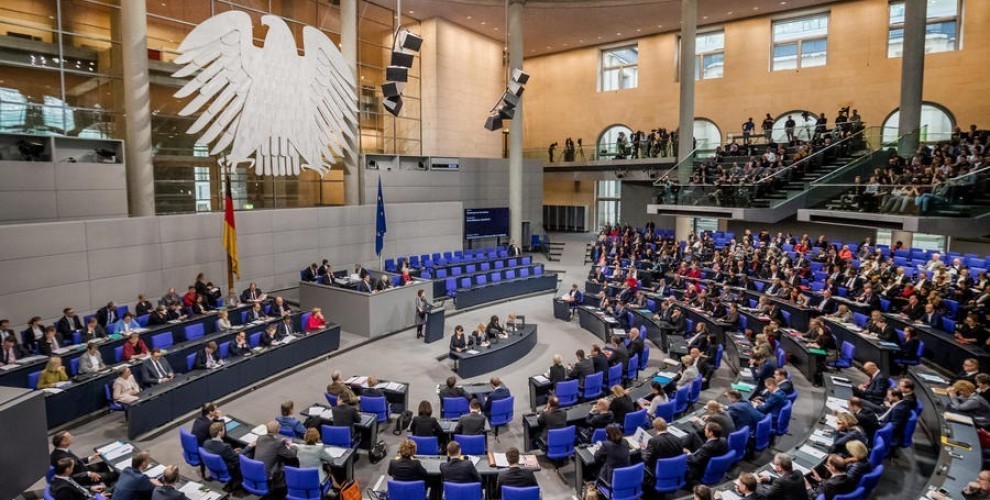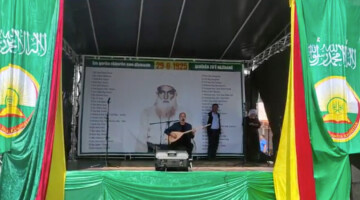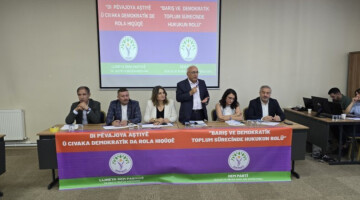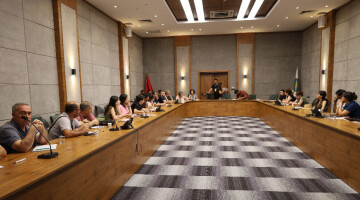The Federal Office for the Protection of the Constitution (BfV) had announced their 2017 report last Tuesday, in a press conference attended by BfV President Hans-Georg Maassen and Minister of Interior Affairs Horst Seehefer, and included information on the institutions and organizations under surveillance in Germany.
30 out of the 359 pages of this year’s report deals with the Kurdish freedom struggle, while the report as a whole criminalizes and targets Kurdish institutions. The report summarizes activities by Kurds in Germany during 2017, and attributes the European campaign for a No vote in the April 16 constitutional referendum in Turkey to the PKK.
Die Linke, an opposition party with a group in the Federal Parliament, took the report to the Federal Parliament. The inquiry prepared under the lead of MP Ulla Jelpke and submitted to the Federal Parliament by the Die Linke group asked about what the federal government under Merkel’s leadership makes of the comments on the No campaign in the intelligence report.
The inquiry also mentioned that the No campaign wasn’t just handled by the HPD and the Kurds, but that many political parties from HDP to CHP to Iyi Party came together in the same front, which then received support from German parties like the SPD, the Greens and Die Linke.
“THE GOVERNMENT SHOULD MAKE THEIR INFORMATION PUBLIC”
The inquiry pointed out that the No campaign which boasted a diverse cast of supporters being attributed wholly to the PKK is what the Erdoğan regime aims for, and demanded the Merkel government answer the following questions:
- How did the federal government come to the conclusion that “the No platform in Europe is made up of mostly PKK activists and was administered by organizations close to the PKK”?
- According to the federal government, what groups, parties, persons or forces participate in the No Campaign against the presidential system in Turkey? Out of the participants, which ones does the federal government consider close to the PKK, and which ones far?
- We demand a detailed explanation of who participated in the No in Europe Platform. Which organizations therein are close to the PKK, and how much influence does the PKK have in this platform?
- According to the federal government, which groups participated in the platform and what is the nature of their relationship with PKK?
- Is the federal government aware of activities held as part of the No Campaign? Which forces and groups participated in these events? Were PKK symbols or slogans used in these events?
- How did the authors reach the conclusion included in the report that “The PKK rejected the constitutional amendment referendum where a presidential system for Turkey was up for voting, because they thought this system would bring more military operations their way”? Which sources and what information was used to weave this analysis? Does the federal government know why the PKK rejects the presidential system? If so, what are they?














